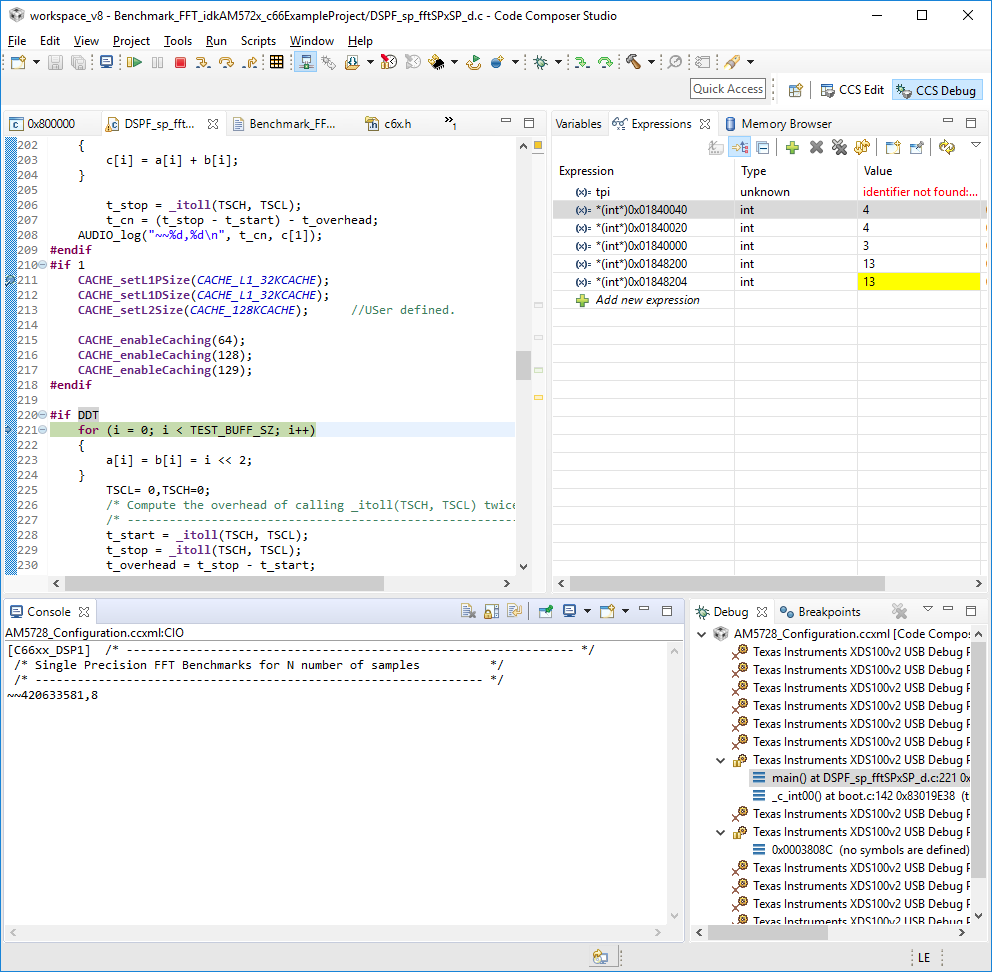Other Parts Discussed in Thread: TEST2
Tool/software: Code Composer Studio
Hi, kind TI and everyone,
I followed "TMS320C66x DSP Cache User Guide" 2.2, and tested VLIB_xyGradients() using AM5728 IDK and CCS8.2 as bellow:
main.c:
...
// for allocate into DDR
#pragma DATA_SECTION(ppin, ".ddr")
#pragma DATA_SECTION(ppgradx_opt, ".ddr")
#pragma DATA_SECTION(ppgrady_opt, ".ddr")
#pragma DATA_SECTION(ppgradx_cn, ".ddr")
#pragma DATA_SECTION(ppgrady_cn, ".ddr")
// for align with L2 cache
#pragma DATA_ALIGN(ppin, CACHE_L2_LINESIZE)
#pragma DATA_ALIGN(ppgradx_opt, CACHE_L2_LINESIZE)
#pragma DATA_ALIGN(ppgrady_opt, CACHE_L2_LINESIZE)
#pragma DATA_ALIGN(ppgradx_cn, CACHE_L2_LINESIZE)
#pragma DATA_ALIGN(ppgrady_cn, CACHE_L2_LINESIZE)
uint8_t ppin[HH * WW];
int16_t ppgradx_opt[HH * WW], ppgrady_opt[HH * WW];
int16_t ppgradx_cn[HH * WW], ppgrady_cn[HH * WW];
...
.cinit : load > L2_SRAM
.cio : load >> L2_SRAM
.text : load >> L2_SRAM
.stack : load > L2_SRAM
.const : load > L2_SRAM START(const_start) SIZE(const_size)
.far : load >> L2_SRAM
.switch : load >> L2_SRAM
.fardata : load >> L2_SRAM
.data : load >> L2_SRAM
.neardata : load >> L2_SRAM
.rodata : load >> L2_SRAM
.sysmem : load > L2_SRAM
.ddr : load >> EXT_MEM


